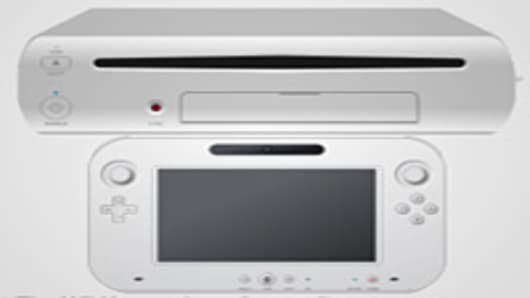As Nintendo prepares to launch the Wii U later this year and Microsoft and Sony gear up for expected 2013 launches for their next generation consoles, there's a sense of excitement building in the videogame industry — but there's also a sense of fear.
The market has changed considerably since the launch of the Wii, Xbox 360 and PlayStation 3 — and while new console launches used to be a surefire way to reinvigorate both core and casual gamers, nobody's certain if that will happen this time.
"I'm a bull on consoles, but I'm not real bullish on this next generation," says Billy Pidgeon, senior analyst with M2 Research. "I think they're going to get slammed from both sides."
There are plenty of reasons to be concerned. Retail sales of videogame software and hardware have declined for the past three years – and 2012 is down 27 percent compared to 2011 so far. The most recent hardware launches – Nintendo's 3DS and Sony's PS Vita — both got off to rocky starts.
The 3DS has rebounded, thanks to a substantial price cut and a flood of high profile games. The Vita is still struggling. And while the handheld market is markedly different from consoles, analysts say both systems could be canaries in the coal mine for the console industry.
Some of those analysts are particularly dire.
Piper Jaffray's Michael J. Olson and Andrew D. Connor estimate hardware sales for each console will be down significantly compared to the current generation. The duo expect the Wii U to sell just 35 percent of the volume of the original Wii during the first 14 months.
Sony's next-gen system (expected to be called the PlayStation 4) will only sell half of the volume of the PS3, they say, due to competition from smart phones and tablets. And Microsoft's next Xbox will sell only 55 percent of the volume the Xbox 360 did.
"Unfortunately, we do not expect a console refresh to fully offset the secular declines in console gaming," said the analysts.
"We believe console gaming will continue to be a time-share donor to social networks, mobile games and tablets," they added in a separate note to investors. "We, therefore, favor companies with increasing exposure to social/mobile gaming, including … Zynga and EA ."
Not everyone is quite so bearish.
Not everyone is quite so bearish.
Mike Hickey with National Alliance Capital Markets says he has been particularly interested in Microsoft's recent decision to offer the Xbox 360 to customers for $99 with a two-year, $15 monthly subscription. Microsoft, which only offers the deal through its Microsoft stores, has labeled the offer as an experiment. Hickey calls it a trial balloon.
"Microsoft could crush it this cycle," says Hickey. "And if [forthcoming game graphics engine] Unreal Engine 4 really reduces [development costs], that could be a huge win for the content makers. If Kinect is cleverly boxed in with Xbox hardware, that could be very powerful."
Offering a new console at a mass market price, with an incentivized monthly payment plan could turn heads and convince people who normally wait years before buying game systems to invest early in the next generation.
More importantly, if Microsoft (or Sony, if it adopts a similar model) has those consoles in people's homes, it can increase its tie ratio — the number of games sold per system. And ultimately, success in the console business is more about software sold than it is about hardware numbers.
"The reality is it's going to take longer to get to that 10 million installed base," says Pidgeon. "And I don't think a big installed base is necessarily a sign of success. Selling all those Wiis was not success, because [Nintendo is] not selling [games for] those Wiis."
The biggest looming threat to console makers remains Apple. With rumors of an Apple television gathering steam and that company's large and loyal customer base, the danger to traditional games companies could extend well beyond handheld systems.
Apple CEO Tim Cook, at the recent D10 conference, downplayed talk that Apple might make its own console, but did underscore his interest in the videogame industry.
"Gaming has kind of evolved a bit," he said. "More people play on portable devices. Where we might go in the future, we'll see. Customers love games. I'm not interested in being in the console business in what is thought of as traditional gaming. But Apple is a big player today and things in the future will only make that bigger."
Should Apple extend its footprint further into gaming, it's not just Sony, Nintendo and Microsoft that could suffer, too. Retailers like GameStop, which rely on customers buying $60 packaged software, could be impacted.
"The cool thing about Apple is its customer is a 100 percent digital DNA consumer," says Hickey. "They don't go to the store to buy things. Once you have that mentality and you make that switch from the tablet and phone to the TV — boom, it's [a] pure digital [industry]."
-By CNBC's Chris Morris
Follow Chris Morris on Twitter: @MorrisatLarge


